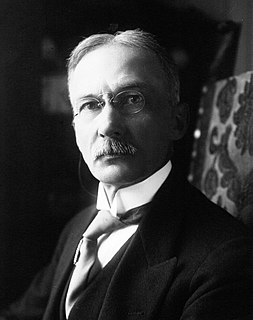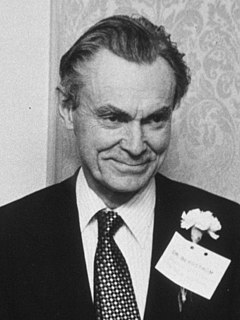A Quote by Mary Midgley
It is this claim to a monopoly of meaning, rather than any special scientific doctrine, that makes science and religion look like competitors today. Scientism emerged not as the conclusion of scientific argument but as a chosen element in a worldview - a vision that attracted people by its contrast with what went before - which is, of course, how people very often do make such decisions, even ones that they afterwards call scientific.
Quote Topics
Afterwards
Any
Argument
Attracted
Before
Call
Chosen
Claim
Competitors
Conclusion
Contrast
Course
Decisions
Doctrine
Element
Emerged
Even
How
Like
Look
Make
Makes
Meaning
Monopoly
Often
People
Rather
Religion
Science
Science And Religion
Scientific
Scientism
Special
Than
Today
Very
Vision
Which
Worldview
Related Quotes
Science, at its core, is simply a method of practical logic that tests hypotheses against experience. Scientism, by contrast, is the worldview and value system that insists that the questions the scientific method can answer are the most important questions human beings can ask, and that the picture of the world yielded by science is a better approximation to reality than any other.
Often, some people dress something up to make it sound scientific, use scientific words, call themselves doctor something-or-other, and then you look them up, and they're trying to make it sound like something it's not. There's this entire field that's adding the word 'quantum' to everything. It doesn't even make sense in that context.
The need for general scientific understanding by the public has never been larger, and the penalty for scientific illiteracy never harsher. Lack of scientific fundamentals causes people to make foolish decisions about issues such as the toxicity of chemicals, the efficacy of medicines, the changes in the global climate.
How can we find spiritual meaning in a scientific worldview? Spirituality is a way of being in the world, a sense of one’s place in the cosmos, a relationship to that which extends beyond oneself. . . . Does scientific explanation of the world diminish its spiritual beauty? I think not. Science and spirituality are complementary, not conflicting; additive, not detractive. Anything that generates a sense of awe may be a source of spirituality. Science does this in spades. (158-159)
I wish there was a serious investigation into flying saucers that wasn't conducted by crackpots. Unfortunately nearly all of the people who are interested in them kind of manufacture the evidence to fit the theories rather than the other way around. So it's very hard to find any dispassionate treatment of them. Maybe there isn't any scientific basis in which case that's why you never see any scientific evidence.
The traditional boundaries between various fields of science are rapidly disappearing and what is more important science does not know any national borders. The scientists of the world are forming an invisible network with a very free flow of scientific information - a freedom accepted by the countries of the world irrespective of political systems or religions. ... Great care must be taken that the scientific network is utilized only for scientific purposes - if it gets involved in political questions it loses its special status and utility as a nonpolitical force for development.
Of course, the laws of science contain no matter and have no energy either and therefore do not exist except in people's minds. It's best to be completely scientific about the whole thing and refuse to believe in either ghosts or the laws of science. That way you're safe. That doesn't leave you very much to believe in, but that's scientific too.
There is no "scientific worldview" just as there is no uniform enterprise "science" - except in the minds of metaphysicians, school masters, and scientists blinded by the achievements of their own particular niche... There is no objective principle that could direct us away from the supermarket "religion" or the supermarket "art" toward the more modern, and much more expensive supermarket "science." Besides, the search for such guidance would be in conflict with the idea of individual responsibility which allegedly is an important ingredient of a "rational" or scientific age.
The confidence in the unlimited power of science is only too often based on a false belief that the scientific method consists in the application of a ready-made technique, or in imitating the form rather than the substance of scientific procedure, as if one needed only to follow some cooking recipes to solve all social problems. It sometimes almost seems as if the techniques of science were more easily learnt than the thinking that shows us what the problems are and how to approach them.
Science and religion...are friends, not foes, in the common quest for knowledge. Some people may find this surprising, for there's a feeling throughout our society that religious belief is outmoded, or downright impossible, in a scientific age. I don't agree. In fact, I'd go so far as to say that if people in this so-called 'scientific age' knew a bit more about science than many of them actually do, they'd find it easier to share my views.
[In] the realm of science, ... what we have achieved will be obsolete in ten, twenty or fifty years. That is the fate, indeed, that is the very meaning of scientific work. ... Every scientific "fulfillment" raises new "questions" and cries out to be surpassed rendered obsolete. Everyone who wishes to serve science has to resign himself to this.
As the popular trust in science fades - and many sociologists say that's happening today - people will develop a distrust of purely "scientific" psychology. Researchers in the universities haven't picked up on this; they're more interested in genetics and computer models of thinking than ever. But, in general, there is a huge distrust of the scientific establishment now.
Almost all major scientific projects today are huge collaborations, yet we still have this public obsession with the idea of the individual scientific genius. One of my goals as a science communicator is to celebrate the collaborative dimensions of science, which I think will be critical for facing the ecological and resource challenges ahead. In a sense, we are all corals now.









































